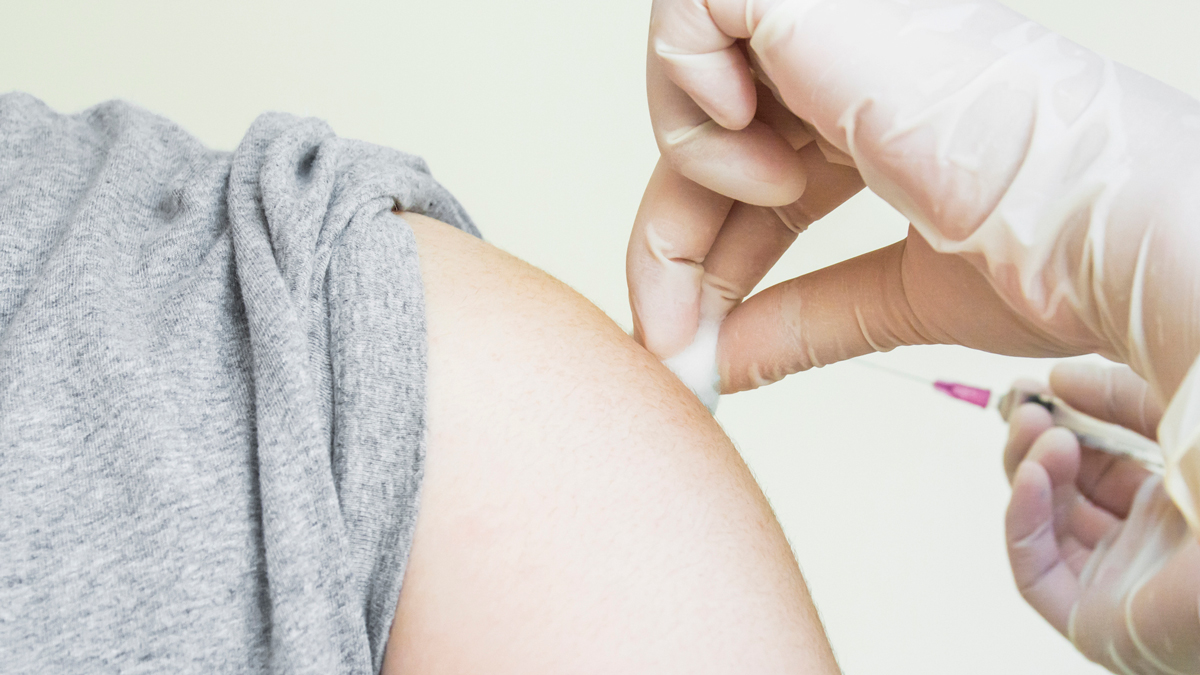UK real-world study finds COVID-19 jab protection wanes

A study has found evidence that protection from the AstraZeneca and Pfizer/BioNTech COVID-19 vaccines starts fall off after a few months, but a UK government advisor says there's no need to rush into a large-scale booster campaign.
The results of the ZOE COVID study found that initial protection against infection a month after the second dose of the Pfizer vaccine was 88%, and after five to six months fell to 74%.
Similarly, for the AZ vaccine, there was around 77% protection a month after the second dose, falling to 67% after four to five months.
The study was carried out from data provided by people who logged COVID-19 vaccinations and test results via an app, and involved more than 1.2 million results and participants – making it one of the largest real-life vaccine effectiveness studies on record, according to the researchers.
The reduction in protective efficacy isn't unexpected, according to lead investigator Prof Tim Spector of King's College London, but could mean that a new vaccination strategy will be needed in the UK in the coming months.
"A reasonable worst-case scenario could see protection below 50% for the elderly and healthcare workers by winter," he said.
"With high levels of infection in the UK, driven by loosened social restrictions and a highly transmissible variant, this scenario could mean increased hospitalisations and deaths. We urgently need to make plans for vaccine boosters and… decide if a strategy to vaccinate children is sensible," he added.
Prof Adam Finn, a member of the UK Joint Committee on Vaccination and Immunisation (JCVI), has told the BBC that there is no need to start revaccinating people across the board, particularly as it seems the jabs are still offering very high levels of protection against serious illness, which is the "main objective".
He added however that the results do suggest that a third-dose campaign in people with weakened immune systems should start quickly to protect the vulnerable – but may not extend to the "healthy elderly".
Prof Spector concurred with that sentiment, saying that giving a booster to everyone "would be a huge waste and ethically dubious" given the international constraints on the supply of COVID-19 vaccines.
The government has said repeatedly it expects to begin offering some people a third jab next month, but the JCVI has yet to finalise advice to the government on the best strategy. Meanwhile, the UK recorded another 30,838 cases on Monday, with 174 deaths.
Meanwhile, a study in US healthcare workers conducted by the US Centers for Disease Control and Prevention (CDC) has found that the efficacy of the Pfizer and Moderna vaccines at preventing infection dropped from 91% before the delta variant became dominant to 66% afterwards.
"Although these interim findings suggest a moderate reduction in the effectiveness of COVID-19 vaccines in preventing infection, the sustained two thirds reduction in infection risk underscores the continued importance and benefits of COVID-19 vaccination," according to the CDC scientists.
J&J reports booster dose data
Meanwhile, Johnson & Johnson has said that a second-dose of its one-shot vaccine - given after six months - provides a "rapid and robust" increase in antibodies that were nine times higher than after the first dose.
"We have established that a single shot of our COVID-19 vaccine generates strong and robust immune responses that are durable and persistent through eight months," said Mathai Mammen, global head of J&J's Janssen Research & Development unit.
"With these new data, we also see that a booster dose of the J&J COVID-19 vaccine further increases antibody responses among study participants who had previously received our vaccine," he added.













